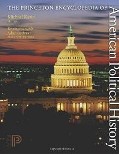Trial Access to the Stalin Digital Archive
The Stalin Digital Archive contains 29,000 selected documents from the Russian State Archive of Social and Political History (RGASPI). RGASPI and Yale University Press collaborated in the selection and digitization. At the core of the digital archive are documents written by Stalin from 1889 to 1952, books from Stalin’s personal library with his marginalia and biographical materials.
Yale University Press also contributed digitized editions of its Annals of Communism series. Books in the series contain selected primary sources in the original Russian language together with English translations and editorial comments. For more information about contents, search interface and the document viewer, please consult the online Stalin Digital Archive User Guide.
Trial access to the Stalin Digital Archive will be available until March 23. We are looking forward to your feedback.
Related resources:
Print editions of the Annals of Communism series at Falvey.
The Current Digest of the Russian Press, 1949-





